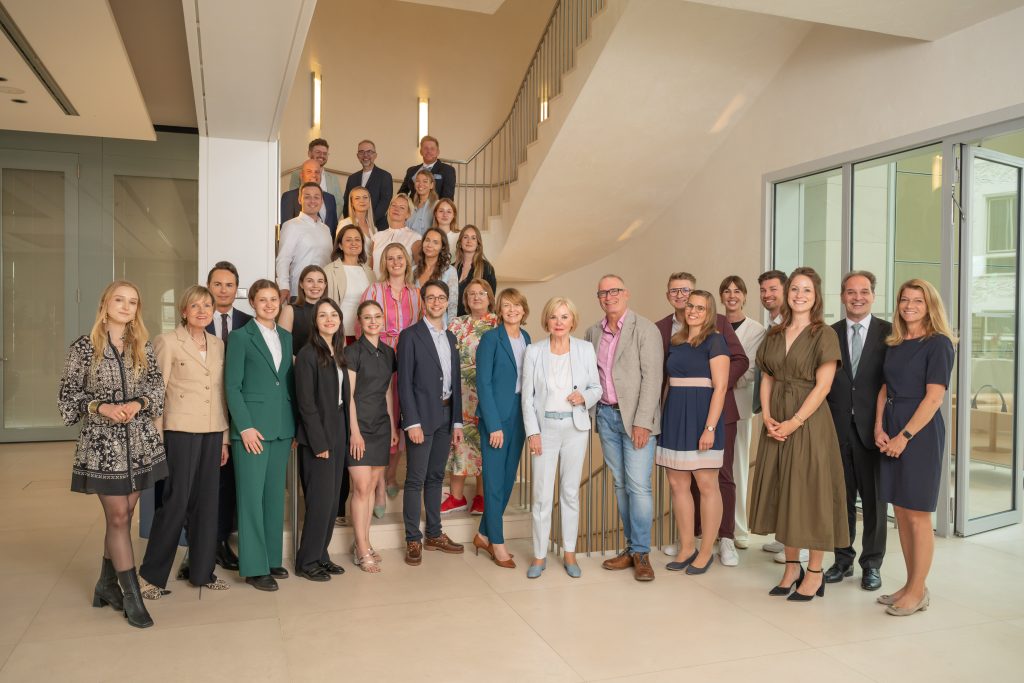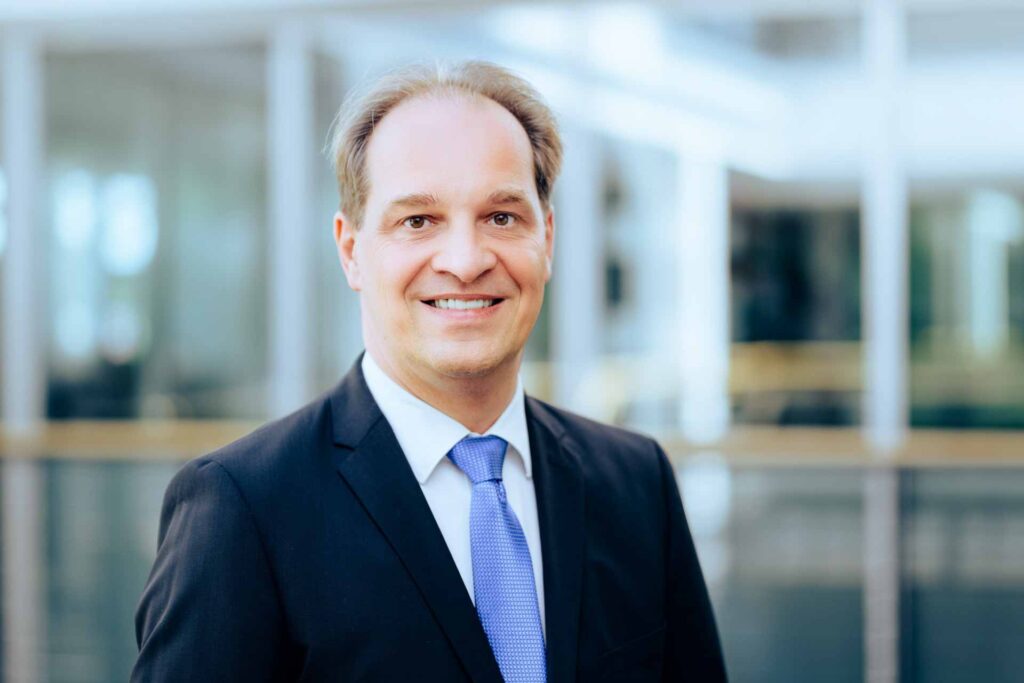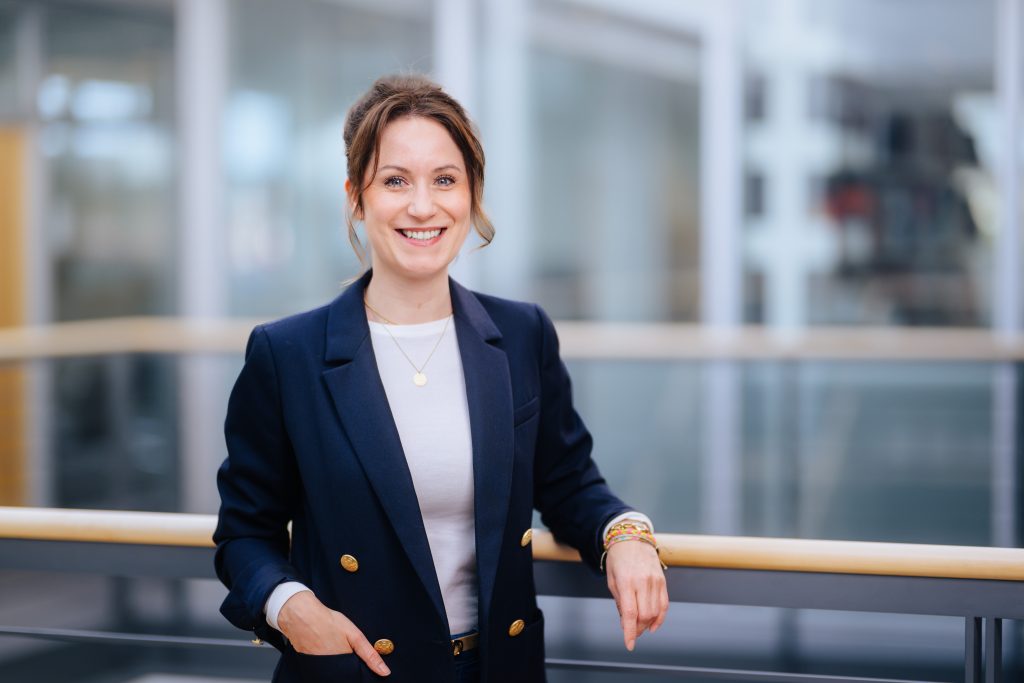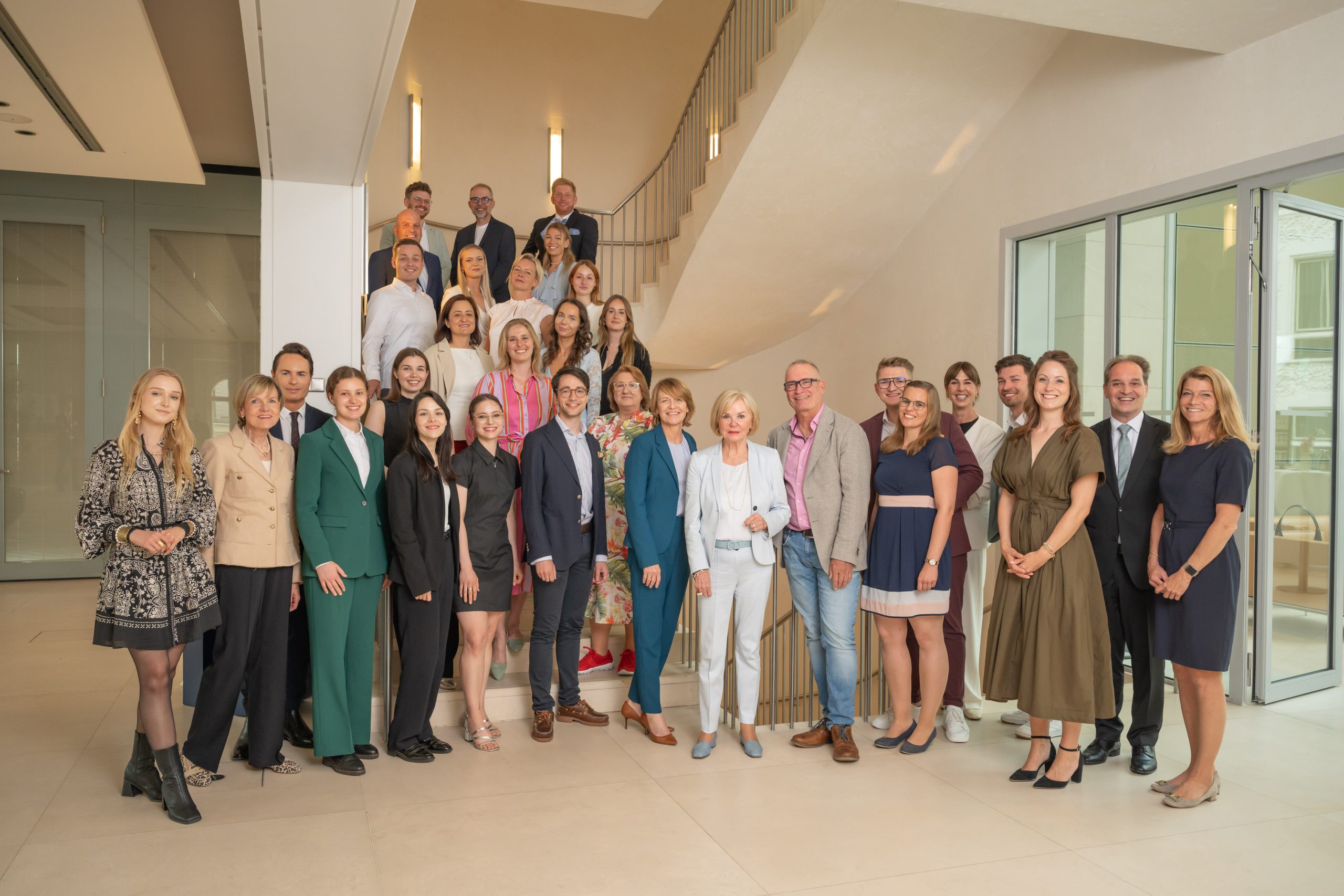Change of Perspective and Intergenerational Dialogue through Reverse Mentoring
The pilot project “Voneinander Lernen!” puts the principle of learning from younger people at the center: Teachers are empowered, through exchanges with young experts who take on the role of mentors, to integrate digital opportunities into their teaching in a responsible way. At the same time, the young mentors take on responsibility, strengthen their communication skills, and promote digital education in a sustainable manner.
Facilitated by “Digital8” under founder Paul von Preußen, the younger generation takes on the role of mentors, representing a deliberate change in perspective within the traditional mentoring model.
Four Schools from Four different Federal States
Four schools with different educational profiles from four different federal states are participating in the model project. In addition to the Evangelisch Stiftisches Gymnasium, the Don-Bosco-School from Rostock, the Ernst Schering School from Berlin, and the Gemeinnützige Gesellschaft für Soziale Dienste from Nuremberg/Ingolstadt as the sponsor of vocational schools for nursing, elderly care assistance, and social care are also taking part in the project.
Each school provides three teachers. Each teacher regularly meets with a young digital expert over a period of eight months. These one-to-one tandems focus, among other things, on the use of digital tools in the classroom, current trends in social media, or dealing with cyberbullying. Teachers gain new insights into digital environments and reflect on their own teaching practices. The so-called “tandems” jointly develop a digital project that can ideally be extended to the entire school.
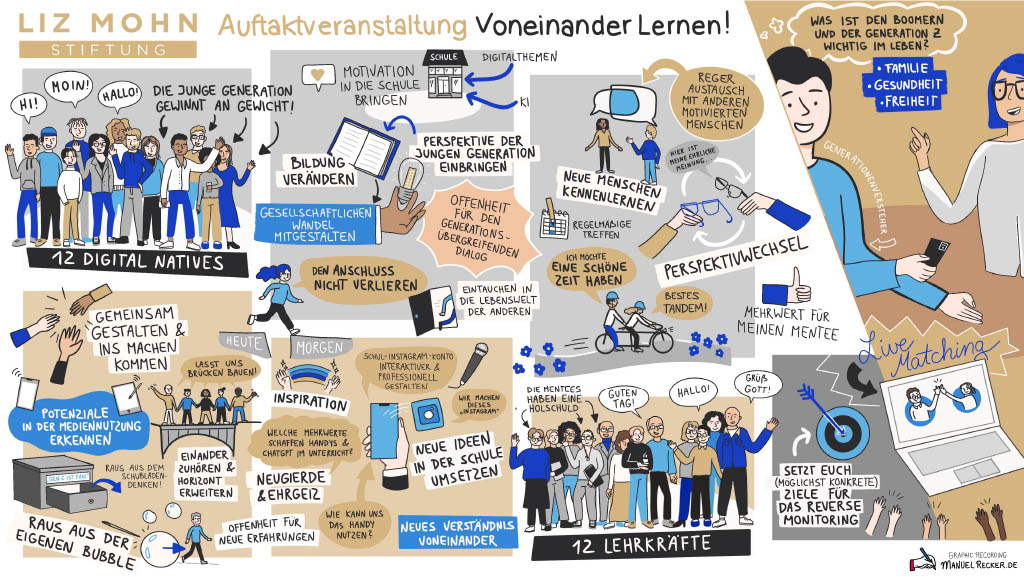
Role Reversal as a Development Concept
The two initiators, Elke Büdenbender and Liz Mohn, launched the project “Voneinander Lernen!” with the goal of strengthening the digital competencies of teachers, fostering understanding between generations, and providing new impetus for the education sector. At the same time, young digital experts contribute their skills in leadership and knowledge transfer.
The insights gained from the project serve as a best-practice example for future professional development formats in education and are summarized in an accompanying qualitative evaluation.
